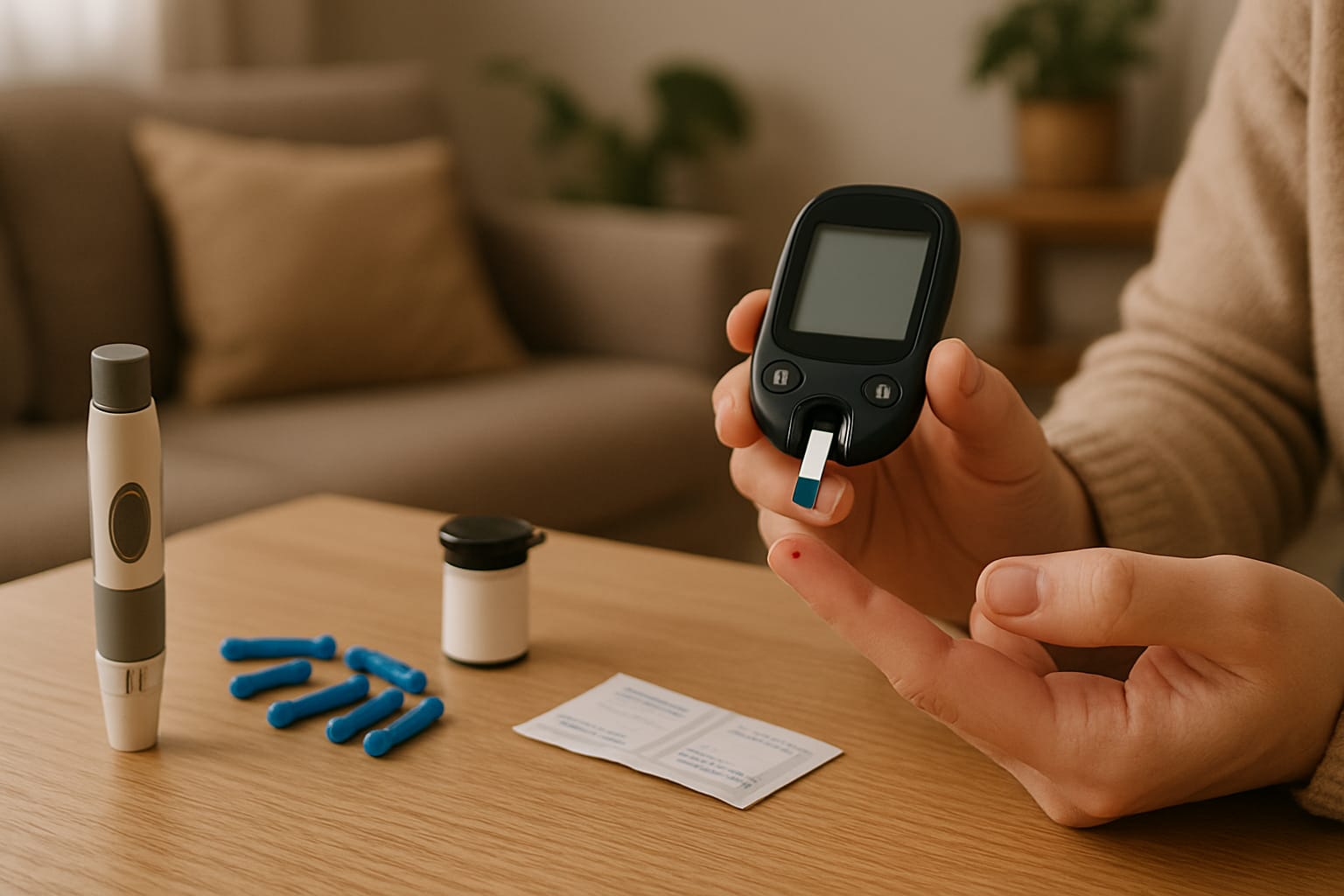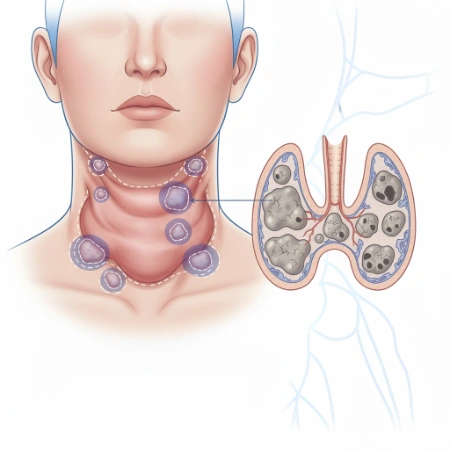Overview
The Endocrinology Department at Believers Hospital is dedicated to providing exceptional care for patients with endocrine disorders. Our team of highly skilled endocrinologists, nurse practitioners, and specialized staff work collaboratively to diagnose, treat, and manage a wide range of hormonal and metabolic conditions. We utilize the latest advancements in medical technology and research to offer comprehensive and personalized treatment plans tailored to each patient's unique needs.
Our department is equipped to handle complex cases involving thyroid disorders, diabetes and its complications, pituitary disorders, metabolic bone diseases, adrenal disorders, growth and developmental issues, and menopause-related problems. We understand the significant impact these conditions can have on an individual's quality of life, and we are committed to delivering compassionate and effective care to improve our patients' overall health and well-being.
In addition to clinical care, we emphasize patient education and empowerment. Our team provides valuable resources and support to help patients understand their conditions, make informed decisions, and manage their health proactively. Whether you are dealing with a newly diagnosed condition or seeking advanced treatment options, our Endocrinology Department is here to support you every step of the way.
Services
-
Thyroid Disorders:
- Diagnosis and treatment of hypothyroidism, hyperthyroidism, thyroid nodules, and thyroid cancer.
- Personalized treatment plans for optimal thyroid health management.
-
Diabetes and Related Complications:
- Comprehensive care for Type 1, Type 2, and gestational diabetes.
- Blood sugar monitoring, insulin therapy, and lifestyle education.
- Management of diabetes-related complications such as neuropathy, nephropathy, and retinopathy.
-
Pituitary Disorders:
- Diagnosis and treatment of pituitary gland disorders, including pituitary tumors, acromegaly, and hypopituitarism.
- Advanced diagnostic tools and treatment options.
-
Metabolic Bone Disease:
- Care for osteoporosis, Paget's disease, and osteomalacia.
- Bone density testing, fracture risk assessment, and personalized treatment plans.
-
Adrenal Disorders:
- Evaluation and management of adrenal disorders such as Addison's disease, Cushing's syndrome, and adrenal tumors.
- Comprehensive diagnostic evaluations and treatment plans.
-
Growth & Developmental Disorders:
- Evaluation and treatment of growth and developmental disorders in children and adolescents.
- Growth hormone therapy and management of conditions like Turner syndrome and growth hormone deficiency.
-
Menopause & Related Problems:
- Care for women experiencing menopause and hormonal issues.
- Hormone replacement therapy and management of menopausal symptoms.
- Support for overall well-being during the menopausal transition.
Specialists
FAQ
Diabetes occurs when the pancreas does not secrete an adequate amount of hormone called insulin or the body does not respond properly to insulin. It causes an imbalance between the effects of insulin and glucagon and results in an endocrine condition called diabetes.
The normal blood sugar level for an adult should be between 4.0 to 5.4 mmol/L (72 to 99 mg/dL) when fasting and up to 7.8 mmol/L (140 mg/dL) 2 hours after meals
Diabetes,Hyperthyroidism, Hypothyroidism, Adrenal insufficiency (Addison disease), Hypopituitarism, Diabetes insipidus, Cushing's disease, Osteoporosis, Calcium and sodium disorders, Secondary hypertension, Acromegaly-Gigantism, Polycystic ovary syndrome(PCOD), Multiple endocrine neoplasia I and II, and Short Stature, Precocious and delayed puberty
If you experience symptoms of hormone-related diseases like sudden weight loss or gain, acne, facial hair in women, infertility, feeling too cold or too hot, change in voice, feeling too tired and severe hair loss.
For high blood sugar levels, the symptoms include extreme thirst, frequent urination, dry skin, hunger, blurred vision, drowsiness and nausea. Whereas for low blood sugar level, the symptoms include shaking, fast heartbeat, sweating, anxiety, fatigue, headache, irritability, dizziness, hunger and impaired vision
News & Events

Believers Church Medical College Hospital, Thiruvalla, in collaboration with the Indian Council of Medical Research…
View this Post

On the occasion of World Podiatry Day, Believers Hospital inaugurated a new Podiatry Clinic, offering…
View this Post


Believers Hospital, in collaboration with the Indian Council of Medical Research (ICMR), hosted a first-of-its-kind…
View this Post





